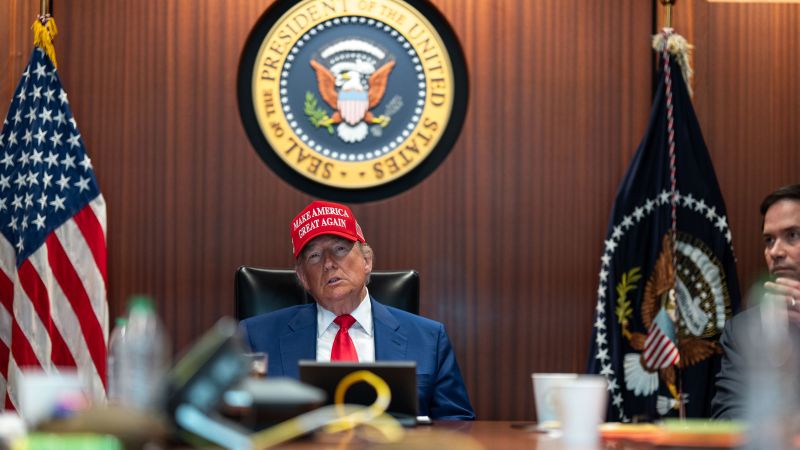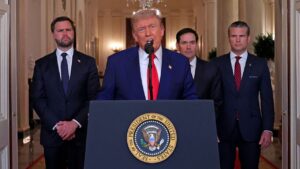
WASHINGTON, D.C. – President Donald Trump’s decision to bomb Iran’s nuclear facilities has sparked a constitutional debate over presidential war powers, challenging the balance between executive authority and congressional oversight.
Immediate Impact
The Trump administration’s reliance on Article II of the Constitution to justify military action without congressional approval has raised eyebrows among lawmakers and legal experts. Two senior administration officials confirmed to CNN that the decision was based on the president’s power to direct military forces to protect American interests abroad.
Key Details Emerge
The White House counsel’s office and the Justice Department were involved in the legal analysis, drawing from previous Department of Justice memos on war powers. “The president is clearly well within his Article II powers here,” a former senior U.S. official told CNN. However, this perspective is not universally accepted.
“This is a large enough scale action that I think it’s likely that it should be considered a war, and not merely a small, severely limited strike. Therefore, it requires congressional authorization,” said Ilya Somin, a law professor at George Mason University.
Background Context
The War Powers Resolution of 1973 was designed to check presidential power following the Vietnam War. It requires presidents to consult Congress before engaging U.S. troops in hostilities. Critics argue that Trump’s actions violate this resolution, as there was no imminent threat justifying the strikes.
Expert Analysis
Chris Anders, senior counsel at the American Civil Liberties Union, emphasized the constitutional implications. “It literally is one of the enumerated powers,” Anders said, referencing the president’s ability to repel sudden attacks, a condition not met in this instance.
By the Numbers
- Three nuclear sites targeted in the strikes
- Over 40 years of Article II power usage by presidents
- 1973: Year the War Powers Resolution was enacted
What Comes Next
Democratic and Republican lawmakers are considering legislative measures to reassert congressional authority over military actions. Representatives Thomas Massie and Ro Khanna are pushing for a war powers resolution, while Senator Tim Kaine advocates for a Senate vote.
Meanwhile, some legal experts draw parallels to past conflicts, cautioning against unchecked executive power. “The problem is that, historically, the only meaningful check on presidential abuses of war powers has been pushback from Congress,” said Stephen Vladeck, a CNN legal analyst.
Regional Implications
The strikes have heightened tensions in the Middle East, with potential repercussions for U.S. foreign policy and military engagements. John Bolton, former national security adviser, highlighted Iran’s history of sponsoring terrorism and threatening U.S. forces in the region.
Timeline of Events
- 1983: Iran’s alleged involvement in Lebanon terrorism
- 2011: Obama’s air strikes in Libya under Article II powers
- 2023: Trump’s decision to bomb Iranian nuclear facilities
The timing is particularly significant as Congress grapples with its role in authorizing military force. The debate over Trump’s actions underscores the ongoing struggle to balance executive power with legislative oversight.
As the situation unfolds, the administration may eventually seek congressional approval if the conflict extends. For now, the strikes remain a contentious issue, reflecting broader concerns about the scope of presidential authority in military affairs.







